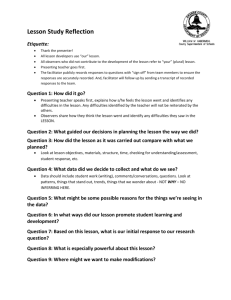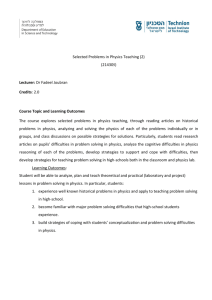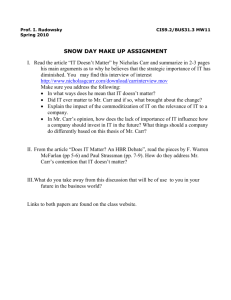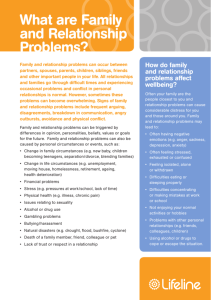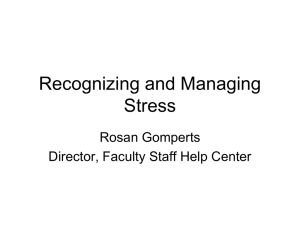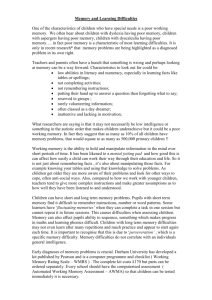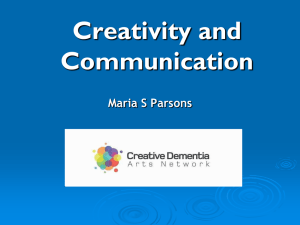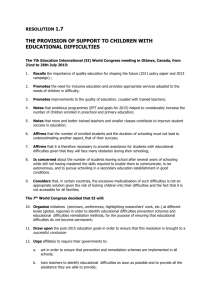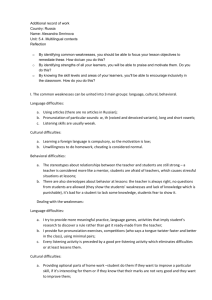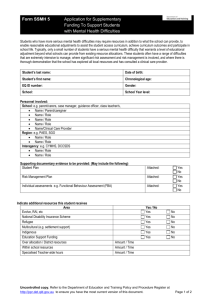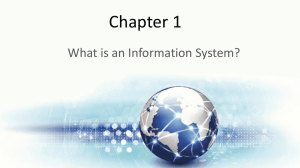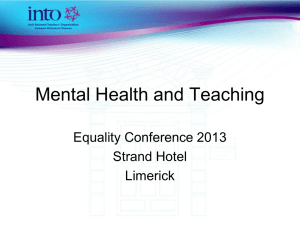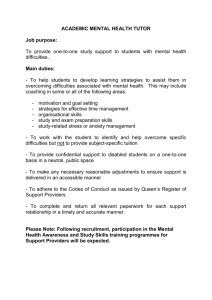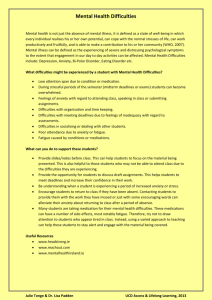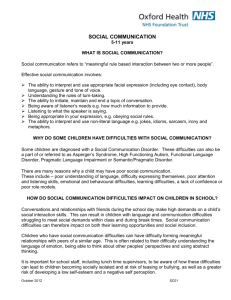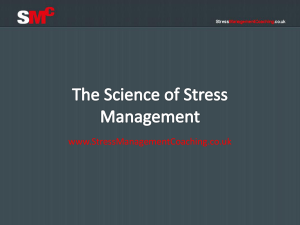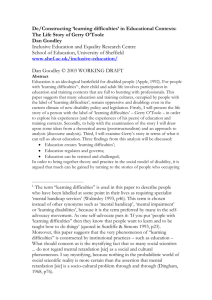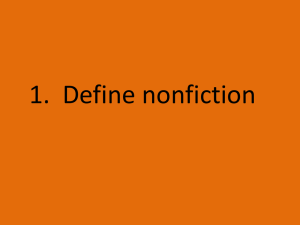49782004 鄭閔文
advertisement
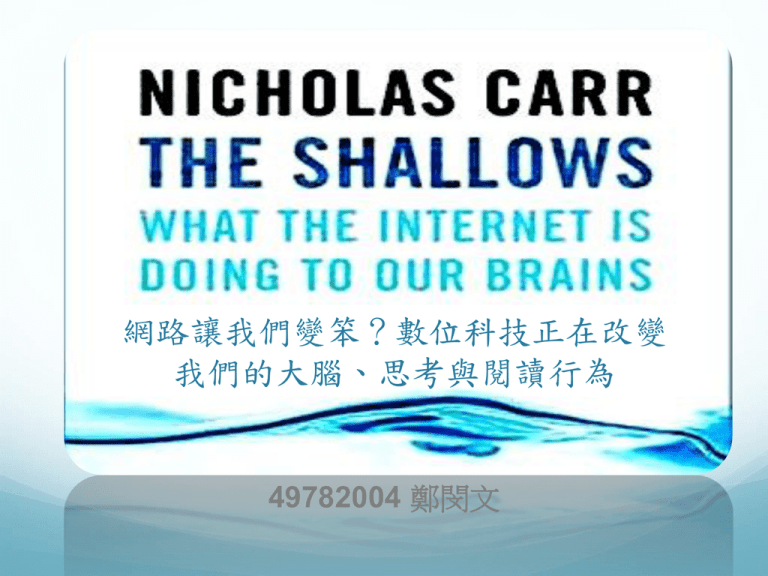
網路讓我們變笨?數位科技正在改變 我們的大腦、思考與閱讀行為 49782004 鄭閔文 Nicholas Carr He is the best-selling author of The Shallows(2011) , The Big Switch(2008), and Does IT Matter?(2004). His articles and essays have appeared in The Atlantic, the New York Times, the Wall Street Journal, Wired, and The New Republic. Nicholas Carr He holds a B.A. from Dartmouth College and an M.A., in English and American Literature and Language, from Harvard University. He has been a critic of technological utopianism. Technological utopianism refers to any ideology based on the belief that advances in science and technology will eventually bring about a utopia, or at least help to fulfill one or another utopian ideal. The translator 王年愷 台灣大學外文系、台北藝術大學管絃擊樂研究所畢業。 現從事專業翻譯工作,譯著包括《台灣產業聚落:蛻變 與重生》等,文章亦散見於《PAR表演藝術》和《繆斯 客》雜誌。 在翻譯之餘,亦以大提琴家身分穿梭在台北的藝文表演 場所之中,或是當免費好人,處理各種電腦和3C產品的 疑難雜症。畢生最大的夢想是一直宅在家裡上網,變成 一個名副其實的Google笨蛋。 Finalist for the 2011 Pulitzer Prize in General Nonfiction Summary How human thought has been shaped through the centuries by “tools of the mind”—from the alphabet to maps, to the printing press, the clock, and the computer. Recent discoveries in neuroscience shows that our brains change in response to our experiences. The technologies we use to find, store, and share information can literally reroute our neural pathways. Summary He explains how the printed book served to focus our attention, promoting deep and creative thought. In contrast, the Internet encourages the rapid, distracted sampling of small bits of information from many sources. Now the Net is remaking us in its own image. We are becoming ever more adept at scanning and skimming, but what we are losing is our capacity for concentration, contemplation, and reflection. The Motives The reason why I chose this book is because…. It’s a nonfiction It’s about new technology and mass communication A brief introduction to this book attracts me 你的生活已經完全數位化了嗎? 如果是的話,小心,你可能得了「網路淺薄症候群」! 趕快檢查一下,你是不是潛在的高危險群: 每天都會使用Google之類的搜尋引擎? 同時開啟的網頁常超過10個文章 還未細讀整篇文章就先轉貼到自己的塗鴉牆? 一發表文章就期待有人按讚回應? 離開電腦或手機就無法安排生活? 很久沒有讀完一整本書了 Google、Yahoo、Facebook..... 你每天使用的網路,正在悄悄改變你的大腦 Difficulties Professional terms (technology and medical science) Ex: Brain plasticity, neurons, axons, neuroscience... The Net also provides a high-speed system for delivering responses and rewards-”positive reinforcements,” in psychological terms-which encourage the repetition of both physical and mental actions. 回應和獎勵(即心理學所稱「正增強」)也可以透過網 路以高速傳送,這也連帶促使我們一再重複同樣的生理 和心理行為。 Difficulties History background and technology development By the mid-nineties, I had become trapped, not unhappily, in the “upgrade cycle.” I retired the aging Plus in 1994, replacing it with a Macintosh Performa 550 with a color screen, a CD-ROM drive, a 500-megabyte hard drive, and what seemed at the time a miraculously fast 33-megahertz processor. 到了一九九零年代中期,我身陷「升級輪迴」中,這讓 我不太愉快。我在一九九四年讓年老的Mac Plus退役, 換成一台麥金塔威力貓550,有著彩色螢幕、唯讀光碟 機、一顆五百MB的硬碟,以及當時感覺快得出奇的 33mHz處理器。 Difficulties Tone (facts and statistics versus self-experiences and opinion) I’m not thinking the way I used to think. I feel it most strongly when I’m reading. I used to find it easy to immerse myself in a book or a lengthy article. My mind would get caught up in the twists of the narrative or the turns of the argument, and I’d spend hours strolling through long stretches of prose. That’s rarely the case anymore. 我不再用以前的方式來思考。當我在閱讀的時候,這種感 覺最強烈。以前我很容易就能沉浸在書本或長文裡。我的 頭腦會深入曲折的敘事或是彎蜒的論述,我也會一次花上 數小時漫步在長篇散文中。這種情形現在已經不常遇到了 。 Difficulties Now my concentration starts to drift after a page or two. I get fidgety, lose the thread, begin looking for something else to do. I feel like I’m always dragging my wayward brain back to the next. The deep reading that used to come naturally has become a struggle. 現在,我在閱讀一兩頁後注意力就會開始飄移。我會坐 立難安,忘掉先前的思緒,並開始找別的事情做。我覺 得我一直在把我任性的頭腦拉回文本上。以前自然而來 的深度閱讀,現在變成一種搏鬥。 Thank you for your listening
